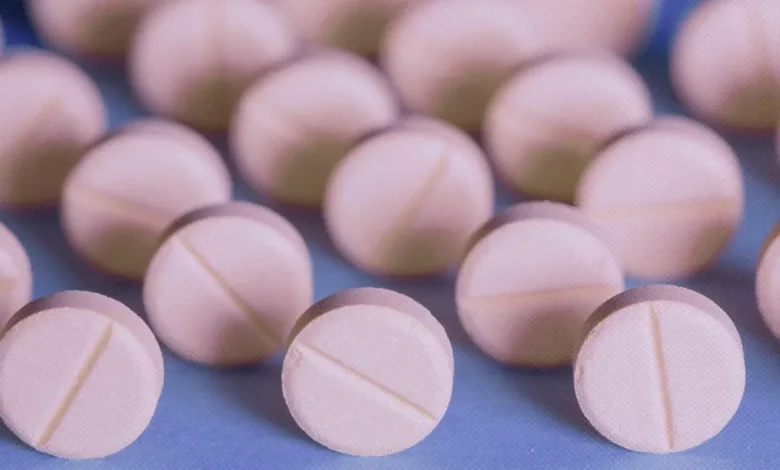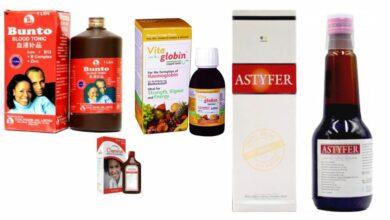
Top 15 Antihypertensive Medications
Top 15 Antihypertensive Medications – Hypertension, or high blood pressure, is a prevalent condition affecting millions of individuals worldwide. Left untreated, it can lead to severe health complications. Antihypertensive medications play a crucial role in managing and controlling blood pressure levels. This article provides an in-depth overview of the top 15 antihypertensive medications, highlighting their mechanisms of action, effectiveness, common side effects, and any notable considerations.Top 15 Antihypertensive Medications
The Top 15 Antihypertensive Medications Are:
1. Thiazide Diuretics
Thiazide diuretics, such as hydrochlorothiazide and chlorthalidone, are among the most commonly prescribed antihypertensive medications. They work by reducing fluid volume in the body, thus lowering blood pressure. Thiazide diuretics are generally well-tolerated and can be used as monotherapy or in combination with other drugs. Potential side effects include electrolyte imbalances and increased urination.
👉 Relocate to Canada Today!
Live, Study and Work in Canada. No Payment is Required! Hurry Now click here to Apply >> Immigrate to CanadaRead Also: 15 Most Serene Environments in Northern Nigeria
2. Angiotensin-Converting Enzyme (ACE) Inhibitors
ACE inhibitors, such as lisinopril and enalapril, block the production of angiotensin II, a hormone that constricts blood vessels. By doing so, they promote vessel dilation, leading to reduced blood pressure. ACE inhibitors are highly effective in various patient populations, including those with diabetes or heart failure. Common side effects include dry cough and dizziness.
3. Angiotensin II Receptor Blockers (ARBs)
ARBs, such as losartan and valsartan, work by blocking the action of angiotensin II at its receptors, preventing blood vessel constriction. They are effective alternatives to ACE inhibitors, particularly in patients who experience cough as a side effect. ARBs are generally well-tolerated, but potential adverse effects may include dizziness, gastrointestinal symptoms, or hyperkalemia.
4. Calcium Channel Blockers (CCBs)
CCBs, such as amlodipine and diltiazem, inhibit calcium from entering muscle cells of the heart and blood vessels, resulting in vasodilation and reduced blood pressure. These medications are available in two main types: dihydropyridine and non-dihydropyridine CCBs. While dihydropyridine CCBs primarily affect blood vessels, non-dihydropyridine CCBs also impact the heart. Side effects may include ankle swelling, flushing, and constipation.
Read Also: Top 15 Stylish Kitchen Designs in Nigeria
5. Beta-Blockers
Beta-blockers, such as metoprolol and atenolol, reduce blood pressure by blocking the effects of adrenaline on the heart and blood vessels. They slow heart rate, decrease cardiac output, and lower blood pressure. Beta-blockers are commonly prescribed for patients with underlying cardiovascular conditions, such as angina or previous heart attack. Potential side effects include fatigue, cold hands and feet, and sexual dysfunction.
6. Alpha-Blockers
Alpha-blockers, such as doxazosin and prazosin, relax the muscles in the walls of blood vessels, allowing blood to flow more easily and lowering blood pressure. They are particularly effective in managing high blood pressure caused by conditions like benign prostatic hyperplasia. Side effects may include dizziness, lightheadedness, and rapid heart rate upon standing up.
7. Renin Inhibitors
: Renin inhibitors, such as aliskiren, directly block the activity of renin, an enzyme involved in the production of angiotensin II. By inhibiting renin, these medications lower blood pressure. Renin inhibitors are usually used in combination with other antihypertensive drugs and are well-tolerated overall. However, caution is advised in patients with renal impairment or those taking certain medications like ACE inhibitors or ARBs.NYSC Portal
👉 Relocate to Canada Today!
Live, Study and Work in Canada. No Payment is Required! Hurry Now click here to Apply >> Immigrate to Canada8. Alpha-2 Agonists
Alpha-2 agonists, such as clonidine and methyldopa, work by stimulating alpha-2 receptors in the brain, leading to decreased sympathetic outflow and reduced blood pressure. These medications are typically used as second-line or adjunctive therapies. Side effects may include dry mouth, drowsiness, and constipation. Abrupt discontinuation of alpha-2 agonists can lead to rebound hypertension, so gradual tapering is necessary.JAMB portal
Read Also: Top 15 Natural Attractions in Nigeria
9. Direct Vasodilators
Direct vasodilators, such as hydralazine and minoxidil, relax the smooth muscles in blood vessels, resulting in peripheral vasodilation and reduced blood pressure. These medications are reserved for specific cases and are often used in combination with other antihypertensive agents. Common side effects include headache, fluid retention, and increased heart rate. Regular monitoring of patients taking direct vasodilators is essential.
10. Potassium-Sparing Diuretics
Potassium-sparing diuretics, such as spironolactone and eplerenone, promote diuresis without causing excessive potassium loss. They work by blocking the action of aldosterone, a hormone that regulates salt and water balance. These medications are often used in combination with other antihypertensives and are particularly useful in patients with heart failure. Potential side effects include hyperkalemia and hormonal imbalances.Romantic love message
11. Combined Alpha and Beta-Blockers
Combined alpha and beta-blockers, such as carvedilol, possess both alpha-blocking and beta-blocking properties. They reduce blood pressure by blocking adrenaline’s effects on the heart and blood vessels and causing vasodilation. These medications are commonly prescribed for patients with heart failure or certain cardiac conditions. Side effects may include dizziness, fatigue, and slow heart rate.Good morning My Love Message
12. Peripheral Adrenergic Inhibitors
Peripheral adrenergic inhibitors, such as reserpine, work by reducing the release of norepinephrine, a neurotransmitter involved in regulating blood pressure. While less commonly used today, they can still be effective in certain cases. Side effects may include depression, sedation, and gastrointestinal disturbances. Due to the risk of significant adverse effects, peripheral adrenergic inhibitors are typically reserved for specific situations.
Read Also: Top 15 Methods for Hair Care for Wigs
13. Direct Renin Inhibitors
Direct renin inhibitors, such as aliskiren, directly inhibit renin, an enzyme responsible for the conversion of angiotensinogen to angiotensin I. By blocking this step, these medications lower blood pressure. They are generally well-tolerated but are often reserved for patients who cannot tolerate other antihypertensive medications due to side effects or contraindications.
14. Vasodilating Beta-Blockers
Vasodilating beta-blockers, such as nebivolol, combine the effects of beta-blockers with vasodilation. In addition to blocking adrenaline’s effects, they promote nitric oxide release, resulting in arterial dilation. These medications are particularly suitable for patients with both high blood pressure and certain cardiovascular conditions, such as heart failure. Side effects are generally mild and similar to other beta-blockers.Information guide Nigeria
15. Central Alpha Agonists
Central alpha agonists, such as clonidine and methyldopa, work by stimulating alpha receptors in the brain, leading to reduced sympathetic outflow and lowered blood pressure. They are often used as second-line treatments or in combination with other antihypertensive medications. Common side effects include dry mouth, drowsiness, and constipation. Abrupt discontinuation can cause rebound hypertension, so gradual tapering is necessary.
Read Also: 15 Best Submersible Pumps for Boreholes in Nigeria
Conclusion
Managing hypertension is crucial for maintaining overall health and preventing complications. The top 15 antihypertensive medications discussed in this article offer a diverse range of treatment options, allowing healthcare providers to tailor therapy to individual patient needs. Each medication comes with its unique mechanisms of action, effectiveness, side effects, and considerations. It is essential for healthcare professionals to assess patient characteristics, such as comorbidities and tolerability, when selecting the most appropriate antihypertensive medication or combination therapy. Regular monitoring and follow-up visits are crucial to ensure optimal blood pressure control and minimize the risk of adverse events.
Check JAMB Result
Check and Confirm: How much is Dollar to Naira







